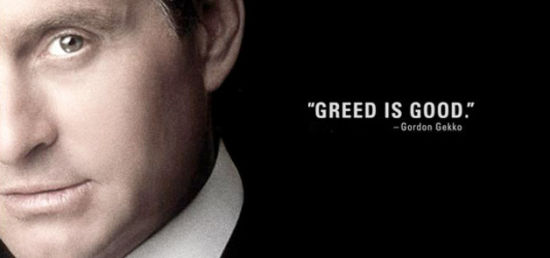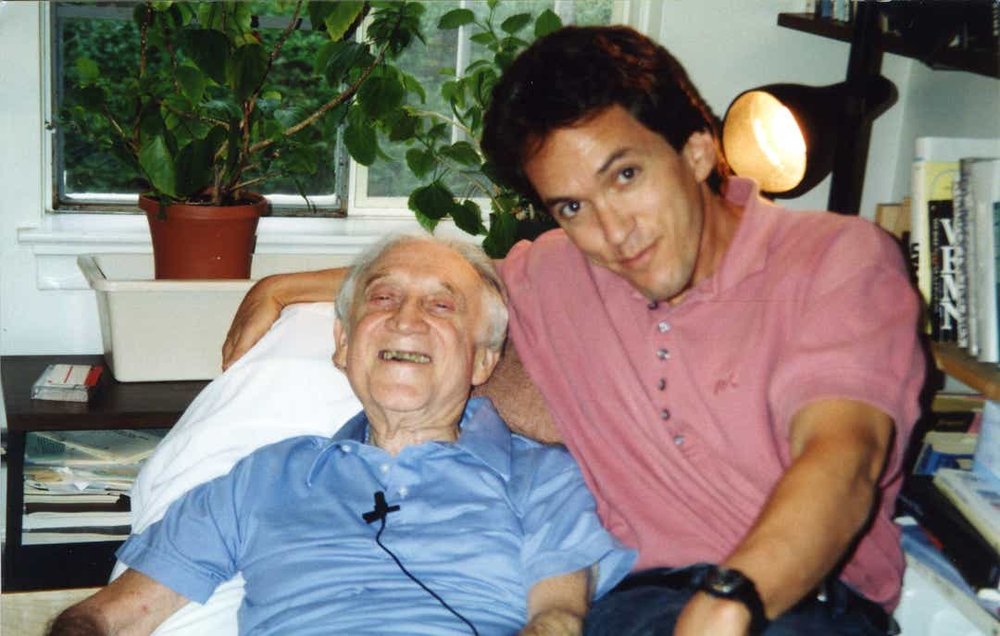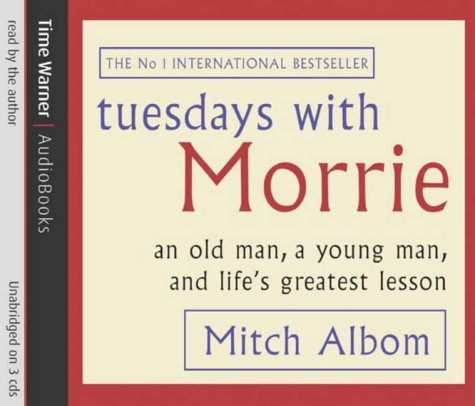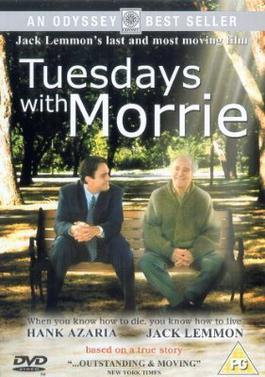- Details
- Written by: Kamran Mofid
- Hits: 2997
‘
'From The Full Monty to The Matrix, films have a lot to say on economics. Mary Poppins teaches us that banking is about confidence, and Some Like it Hot lays bare the trouble with capitalism’
1- Wall Street (1987): beware the corporate raiders
2- Some Like It Hot (1959): the trouble with rentier capitalism
3- The Matrix (1999): you can't trust happiness
4- Mary Poppins (1964): why banking is all about confidence
5- Charlie and the Chocolate Factory (2005): the value of the welfare state
6- Erin Brockovich (2000): how to measure environmental cost
7- The Sound of Music (1965): how to handle success
8- The Full Monty (1997): the reality of unemployment
- Details
- Written by: Kamran Mofid
- Hits: 4318
 Photo credit: PBS News
Photo credit: PBS News
Iranian poet and women’s rights advocate Simin Behbahani has died. Her work probed the social and political challenges that faced Iran after its Islamic Revolution. She was 87
‘To understand the work of Iranian poet Simin Behbahani (1927-2014) is to understand better the paradoxical nature of contemporary Iran. Indeed, if Emily Dickinson so much identified with her community that she occasionally signed her letters "Amherst," then Simin Behbahani can sign her poems "Iran." In book after book, in one deeply felt poem after another, Behbahani has painted miniature portraits of her country over the decades. She has given voice to the yearnings of the Iranian people, chronicled their hopes and disillusionments, documented with pride and precision the heroic resistance and creative subversion of her nation and herself. Hers is poetry of immediacy and resonance, of hopes betrayed and renewed, of disillusionment and dissent. It is high art and popular art at the same time, accessible to the ordinary reader, despite its formal traditionalism, its encyclopaedic breadth, and its many historical and cultural allusions, both local and global. It is a quest for beauty and elegance, for clarity and moderation through all the turbulence of war and revolution.’…
Simin Behbahani – obituary
‘Simin Behbahani, who has died aged 87, was widely considered to be the greatest living Persian language poet, known throughout the Middle East and much of the world as the “Lioness of Iran”.
She was credited with introducing modern themes into traditional verse forms like the ghazal, a Persian sonnet form distinguishable by its rhyming couplets and lilting lyrics. Traditionally, the ghazal featured a male poet addressing a woman. In Simin Behbahani’s poetry, the roles were reversed and she developed classical forms to explore everyday events and address social and political issues, including women’s and minority rights and freedom of expression.
She won numerous international awards both for her campaigning and her verse, and was nominated for the Nobel Prize in Literature in 1999 and 2002. As a result she was blacklisted by Iranian hardliners and denounced as subversive.
Simin Behbahani began writing poetry under the regime of Shah Mohammad Reza Pahlavi, dealing with such matters as poverty, orphans and corruption, reflecting her lifelong concern with the marginalised and outcast. But the ghazal form was out of fashion; most of her poet contemporaries in Iran had embraced modern free-verse forms and some claimed the old genre was dead.
Her most popular poem, My Country, I Will Build You Again, was published soon after the 1979 Islamic revolution and expressed the optimism of those who thought they had witnessed a “democratic” revolution: “My country, I will build you again,/ If need be, with bricks made from my life”. But from the early stages Simin Behbahani was sceptical. “I realised changes were not going in the right direction,” she recalled.
When others woke up to the fact that the Islamic Revolution of 1979 had failed to deliver on its promises, people began to turn back to the old forms of poetry. As a result, Simin Behbahani, who had been largely ignored by the authorities under the Shah, began to attract the attention of the Islamic police.
Her work was banned for 10 years after the revolution and she became the target of harassment. Yet, oddly, for most of that time she was allowed considerable freedom to travel, and she made several tours of the United States.
This freedom, too, was curtailed, however, after the popular protests that followed President Mahmoud Ahmadinejad’s disputed election victory in 2009, when she appeared before both the Iranian and Western media to read two new poems, one commemorating the slain student protester Neda Agha-Soltan and the other denouncing Ahmadinejad without naming him: “If the flames of anger arise any higher in this land, your name on your tombstone will be covered with dirt,” she wrote. “You have become a babbling loudmouth, your insolent ranting, something to joke about.”
In March 2010 the 82-year-old Simin Behbahani, by now almost blind, was detained at Tehran airport as she prepared to board a flight for Paris to attend an International Women’s Day conference and led away by Iranian security officers, who confiscated her passport and interrogated her for several hours.
She was born Simin Khalili in Tehran on July 20 1927 into a family of intellectuals. Her father was a newspaper editor, her mother a poet and French teacher.
She studied law at Tehran University in the 1950s and later took the surname of her first husband, Behbahani, which she kept after their separation and her second marriage.
Simin Behbahani served for many years as president of the Iranian Writers’ Association. She received the Simone De Beauvoir Prize for Women’s Freedom in recognition of her involvement in the “One Million Signatures” campaign for the repeal of discriminatory laws against women in Iran.
Simin Behbahani’s husband predeceased her. She is survived by two sons and a daughter.’
Simin Behbahani, born July 20 1927, died August 19 2014
The above obituary was first published in The Telegraph on 24 August 2014
Simin Behbahani - obituary - Telegraph
Selected Poems:
Simin Behbahani - Books and Poems
"On this day – a celebration that serves as a bridge from the past to the future – I would like to close with a quote from the poet Simin Behbahani – a woman who has been banned from traveling beyond Iran, even though her words have moved the world: "Old I may be, but, given the chance, I will learn. I will begin a second youth alongside my progeny. I will recite the Hadith of love of country with such fervor as to make each word bear life." ~ President Obama, Nowruz Message
My Country, I Will Build You Again
My country, I will build you again,
If need be, with bricks made from my life.
I will build columns to support your roof,
If need be, with my bones.
I will inhale again the perfume of flowers
Favored by your youth.
I will wash again the blood off your body
With torrents of my tears.
Once more, the darkness will leave this house.
I will paint my poems blue with the color of our sky.
The resurrector of “old bones” will grant me in his bounty
a mountains splendor in his testing grounds.
Old I may be, but given the chance, I will learn.
I will begin a second youth alongside my progeny.
I will recite the Hadith of love and country
With such fervor as to make each word bear life.
There still burns a fire in my breast
to keep undiminished the warmth of kinship
I feel for my people.
Once more you will grant me strength,
though my poems have settled in blood.
Once more I will build you with my life,
though it be beyond my means.
- Details
- Written by: Kamran Mofid
- Hits: 11738

Mitch Albom and Morrie.- Photo credit Detroit Free Press
“The most important thing in life is to learn how to give out love, and to let it come in.”
It was over twenty years ago: we were in Canada visiting family and friends in Niagara Falls and Toronto, where I first discovered “Tuesdays with Morrie”. To be precise, we were at my sister’s house in Oshawa, talking and discussing till late at night, when my sister said, “Kamran you must read Tuesdays with Morrie: its all about an old professor and his former student”. This, for obvious reasons, caught my attention and imagination. At the time I was a senior lecturer in economics at Coventry University.
The next day, I recall, my wife and I went to Chapters Book Store and purchased the book.
We got back home to England and I began to read the book. I found it fascinating. Here was a book on life’s big picture and the vital questions: Who am I? Where have I come from? Where am I going? What is the meaning of life? What is wisdom? What is good life? What is happiness? What is dying and death? What is joy? What is pain and sadness?...
“Tuesdays with Morrie” has never left me. Yes, I moved on, put the book on one side and no doubt compromised. But, last night I rediscovered “Tuesdays with Morrie” once again.
My wife and I were searching through our DVDs to find something nice to watch, when we saw “Tuesdays with Morrie”, a film starring Hank Azaria and Jack Lemmon. What can I say but what a fantastic movie, what a brilliant true story.
I realise that its insights are more relevant than ever. Wisdom, maturity, and happiness seem to go hand in hand with figuring out what life is all about and how we may live it.
“Maybe it was a grandparent, or a teacher, or a colleague. Someone older, patient and wise, who understood you when you were young and searching, helped you see the world as a more profound place, gave you sound advice to help you make your way through it.
For Mitch Albom, that person was Morrie Schwartz, his college professor from nearly twenty years ago.
Maybe, like Mitch, you lost track of this mentor as you made your way, and the insights faded, and the world seemed colder. Wouldn't you like to see that person again, ask the bigger questions that still haunt you, receive wisdom for your busy life today the way you once did when you were younger?
Mitch Albom had that second chance. He rediscovered Morrie in the last months of the older man's life. Knowing he was dying, Morrie visited with Mitch in his study every Tuesday, just as they used to back in college. Their rekindled relationship turned into one final "class": lessons in how to live.
Tuesdays with Morrie is a magical chronicle of their time together, through which Mitch shares Morrie's lasting gift with the world. Now the best-selling memoir of all time, Tuesdays with Morrie began as a modest labor of love to help pay some of Schwartz’s medical bills. Today, the book has sold more than 15 million copies in more than 50 editions around the world.”
Life Lessons From Tuesdays With Morrie (Doubleday, 1997)

To summarise Morrie’s thinking on wisdom, life, living and dying:
1. “Accept what you are able to do and what you are not able to do.” (p. 18)
2. “Accept the past as past, without denying it or discarding it.” (p. 18)
3. “Learn to forgive yourself and to forgive others.” (p. 18)
4. “Don’t assume that it is too late to get involved.” (p. 18)
5. Find someone to share your heart, give to your community, be at peace with yourself, try to be as human as you can be. (p. 34)
6. “Love always wins.” (p. 40)
7. “The culture we have does not make people feel good about themselves. And you have to be strong enough to say if the culture doesn’t work, don’t buy it.” (p. 42)
8. “So many people walk around with a meaningless life. They seem half-asleep, even when they’re busy doing things they think are important. This is because they’re chasing the wrong things. The way you get meaning into your life is to devote yourself to loving others, devote yourself to your community around you, and devote yourself to creating something that gives you purpose and meaning.” (p. 43)
9. “. . . if you really want it, then you’ll make your dream happen.” (p. 47)
10. “The most important thing in life is to learn how to give out love, and to let it come in.” (p. 52)
11. “Love is the only rational act.” (p. 52)
12. “I don’t allow myself any more self-pity than that. A little each morning, a few tears, and that’s all . . . . It’s horrible to watch my body slowly wilt away to nothing. But it’s also wonderful because of all the time I get to say goodbye.” (p. 57)
13. “Sometimes you can’t believe what you see; you have to believe what you feel.” (p. 61)
14. “What if today were my last day on earth?” (p. 64)
15. “Once you learn how to die, you learn how to live.” (p. 82)
16. If you accept you are going to die at any time, then you might not be as ambitious as you are. (p. 83)
17. There is no foundation, no secure ground, upon which people may stand today if it isn’t the family. (p. 91)
18. “Don’t cling to things, because everything is impermanent.” (p. 103)
19. “ . . . If you’ve found meaning in your life you don’t want to go back. You want to go forward. You want to see more, do more. You can’t wait until sixty-five.” (p. 118)
20. “Money is not a substitute for tenderness, and power is not a substitute for tenderness.” (p. 125)
21. “ . . . love is how you stay alive, even after you are gone.” (p. 133)
22. “Love each other or perish.” (p. 149)
23. “ . . . the big things—how we think, what we value—those you must choose yourself. You can’t let anyone--or any society—determine those for you.” (p. 155)
24. “Don’t let go too soon, but don’t hang on too long.” (p. 162)
25. “Be compassionate. And take responsibility for each other. If we only learned those lessons, this world would be so much better a place.” (p. 163)
26. “Forgive yourself before you die. Then forgive others.” (p. 164)
27. “As long as we can love each other, and remember the feeling of love we had, we can die without ever really going away. All the love you created is still there. All the memories are still there. You live on—in the hearts of everyone you have touched and nurtured while you were here.” (p. 174)
28. “Death ends a life, not a relationship.” (p. 174)
29. The important questions have to do with love, responsibility, spirituality, awareness. (p. 175)
30. “You’re not a wave, you are part of the ocean.” (p. 180)
31. “. . . there is no such thing as ‘too late’ in life.” (p. 190)
To get to know Morrie and “Tuesdays with Morrie see:
Tuesdays With Morrie | mitchalbom.com
Watch the movie:
Tuesdays With Morrie - YouTube

Morris "Morrie" S. Schwartz (December 20, 1916 – November 4, 1995)
